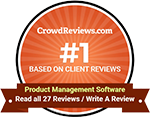It's thrilling to start an online business. You get to pick your company's name, design your logo and branding, and develop your website. While it's simple to think about your current demands, it's equally crucial to evaluate where your organization is headed and what other tools you'll require in the future.
Do you know what are the Benefits Of E-Commerce For Consumers & Businesses? It is no longer sufficient to just select the finest online shop builder. The best ecommerce platform is an ecosystem of tools that interact flawlessly, allowing you total control over every part of your business and the capacity to scale as your firm grows. Let's look at the finest ecommerce platforms and how to choose which one is ideal for your company's needs. First, let’s find out What is eCOmmerce platform and What is the best eCommerce platform.
What is the ecommerce platform?
E-commerce refers to activities such as purchasing and selling that take place via the internet. The many sorts of commerce include B2B, B2C, C2C (consumer to consumer), and C2B (business to business) (consumer to business). Net e-commerce platform is a software program that allows both sides, the vendor and the customer, to come together and perform their respective functions. Essentially, a customer should be able to utilize an e-commerce platform to find items, browse through them using a shopping cart, and then complete the transaction.
While most individuals consider their ecommerce platform to be nothing more than a tool that allows them to display items and receive payments online, a genuine ecommerce platform is much more. Your online ecommerce platform should function as a comprehensive company command center, allowing you to manage everything from inventory to marketing. It should allow you to accept payments while also providing you with easy access to all of the tools you need to sell online, such as (but not limited to) your own online shop.
Comparisons between ecommerce platforms
From innovative marketing capabilities to drool-worthy SEO, multichannel functionality, and more, there's something for everyone. Examine these top ecommerce systems. It might be difficult to understand how seemingly little variations in features and performance can have a significant influence on your bottom line when looking for ecommerce software, but they can. All providers claim to be quicker, more dependable, more suited for search engine optimization, PCI compliant for payment cards, and so on. But what is the truth?
The last thing I want is for you to create your ecommerce site and put up your items only for it to perform extremely slowly. Or discover that you need to invest an extra $399 each month to connect your inventory with Amazon and dropship items.
Using actual site data, we chose to assess the best ecommerce systems' features, performance, simplicity of use, design & themes, and connectors. You'll discover which platform best suits your demands, performs the best, and provides the most value in order for you to conquer your niche. View more eCommerce Services –Solutions for your Online Business in 2022
Performance Test Results
Shopify vs Wix
There is no apparent winner when picking between Shopify and Wix for ecommerce. It is determined by the details of your store. Wix is the winner if you run a small store and want to focus more on general website content. However, if you have a larger business with a variety of items and need to prioritize conversions, Shopify is the way to go.
Both these multi vendor ecommerce platforms have a position in the market and serve their original function effectively. You may always try both the free plan and the free trial to determine which one you believe would be the best fit for your ecommerce endeavors. Let’s take a look to know which eCommerce platforms are suitable for you.
Reason to choose Wix
-
You merely want to test the waters and aren't ready to invest in Shopify. There is a free Wix plan, but it has limitations.
-
You want a general-purpose website that sells a few things. Wix has a superior content management system.
-
Even when utilizing a third-party gateway, there are no transaction fees to be concerned about.
-
A broader range of packaged templates is now accessible.
-
The drag-and-drop user interface simplifies design.
-
With Wix, you can send more automatic abandoned cart emails.
-
GDPR compliance requires built-in solutions for managing cookie consent.
-
Limits on product choices and variations are more liberal.
-
There is an official MailChimp integration available.
-
It is simpler to design forms and collect data.
-
Cleaner URLs are more beneficial to SEO.
Reason to choose Shopify
-
You want something ecommerce-specific to improve conversions.
-
You will require completely responsive templates. Wix requires you to design a mobile and desktop website.
-
Your checkout selections must include several currencies.
-
You require more comprehensive drop shipment choices.
-
A powerful POS application is required for a physical location.
-
If you live in the United States, Canada, or the European Union, the automated tax computation is preferable.
-
If you desire the independence and design flexibility of changing templates fast and simply.
-
Shopify now has more apps and connections accessible.
WooCommerce vs Shopify
As I indicated at the outset of this essay, selecting one over the other is entirely dependent on your requirements. You've seen the features and other pertinent information that will tell you what sort of ecommerce business will flourish on WooCommerce and what type will thrive on Shopify.
However, none of them are ideal for large establishments. I've heard issues about WooCommerce's backend slowing down when there are a lot of orders, and Shopify works better for smaller to medium-sized shops. I'll remain with BigCommerce for huge stores.
Reason to choose Woocommerce
If you want to perform both affiliate marketing and product sales, I recommend WooCommerce. Also, if you want greater control over your design, don't mind fiddling, or your main marketing strategy is to drive traffic through content for search engines, WooCommerce is the way to go. View more some solutions that developed form Woocommerce such as: WORDPRESS MULTI VENDOR MARKETPLACE THEME, WORDPRESS PRINTSHOP WITH CUSTOM PRODUCT DESIGNER
Reason to choose Shopify
If you're new to ecommerce or don't want to deal with technical nuances, Shopify is the way to go. WordPress, let alone WooCommerce, has a far higher learning curve than Shopify. Use Shopify if you're going to be dropshipping. Set up a Shopify store if you want to test things out and try out a few goods. In any case, I hope this WooCommerce Shopify comparison was useful to you in some way.
BigCommerce vs Shopify
Finally, the best website builder is determined by your individual requirements. If you run a boutique or use a dropshipping strategy, Shopify is the superior option. However, if you're a much larger company with a huge number of SKUs, BigCommerce is the superior alternative.
Both ecommerce store builders match the key requirements for an online shopping cart in general, but BigCommerce is more likely to move merchandise off your virtual shelves. Both systems accept many payment channels, have excellent support, a plethora of templates, are feature-rich, and give additional functionality through the ability to connect widgets and applications, provide SEO optimization tools, and integrate with major email marketing apps.
Reason to choose BigCommerce
Many of the functions appear to be the same for both platforms, but there is one item to keep in mind. Visibility. BigCommerce goes above and beyond in the areas that matter, with capabilities that make your online business visible and enticing to customers. To discover more, read my in-depth BigCommerce review.
-
If SEO is your major growth strategy, you should: Despite having what appear to be equal optimization tools, Shopify sites frequently rank worse than BigCommerce sites.
-
If BigCommerce comes with the things you require right out of the box: The Shopify plans that include gift cards, reviews, and ratings as standard features are the most costly.
-
Customizability of product options: BigCommerce's integrated product customisation tool provides additional possibilities and a better user experience.
-
If you like BigCommerce themes,
BigCommerce is often the best option for businesses who wish to eliminate transaction costs. Except for the option to save abandoned carts, the BigCommerce standard plan has several added features that the Shopify standard plan does not. Because you have more access to code, it is also easier to create highly personalized and unique websites.
BigCommerce is a fantastic choice for anybody looking for high-quality reports that may help them build their business. Unlike Shopify, these metrics are available on all tiers. Real-time carrier quotes with shipping reductions are also available. You won't be able to buy these clothing until you pay for the Shopify Advanced plan.
BigCommerce has more product possibilities than Shopify, as well as a plethora of custom fields in file submissions for your items. This facilitates the sale of a broader range of items. You may also sell such things as well as a variety of currencies to buyers all around the world.
BigCommerce provides additional phone access to numerous nations all around the world when it comes to customer care. You also receive an infinite number of staff accounts. To help you make offline sales, all BigCommerce plans integrate with a variety of POS solutions.
Reason to choose Shopify
Before you approach BigCommerce, there are a few drawbacks to consider. Read the complete review of Shopify here.
-
BigCommerce lacks post-purchase functionality for 1-click upsells. Upsells with one click
-
If you do not wish to be charged depending on the number of transactions each month: If you sell more, BigCommerce will automatically upgrade your price.
-
You want more apps and a wider ecosystem of support: Because more ecommerce developers and marketers are familiar with Shopify, more applications are compatible with it.
-
You prefer Shopify Themes.
If you're searching for something that offers abandoned cart recovery at a lower cost, Shopify could be the correct fit for you. You don't have to upgrade to a more expensive plan merely to gain this feature. Shopify also provides greater functionality when it comes to making your site appear amazing, with numerous templates to work with and a bigger selection of typefaces to choose from. Shopify's premium templates outperform BigCommerce's comparable possibilities.
If you want to operate your store from a mobile device, Shopify features a more robust mobile app with additional capabilities for company owners on the move. And, unlike BigCommerce, you get email marketing out of the box rather than relying on connectors.
When it comes to backend capabilities, Shopify provides a more extensive and user-friendly experience. They offer outstanding product categorization in a large range of third-party applications from which to pick. With Shopify, you can even account for a broad range of tax rates while adhering to VAT and MOSS regulations. This takes care of a lot of the financial work on your behalf.
If you want to sell offline as well, Shopify offers a variety of POS technologies that you can use straight from the brand rather than relying on third-party firms.Shopify has an excellent blogging platform that includes an RSS feed. Furthermore, you won't be moved to the next pricing tier if you reach a specified sales number.
Volusion vs Shopify
Unlike BigCommerce, both platforms are appropriate for restricted business concepts. Volusion's attempt to diversify into dropshipping has failed owing to its restricted possibilities. Shopify has that covered, but affiliate marketers and subscription e-commerce platforms should go elsewhere.
Reason to choose Volusion
-
If you're intending to start an affiliate program or accept recurring payments (a subscription company), you should: Volusion includes a built-in solution.
-
If you are a manufacturer or wholesaler in a dull industry: Volusion appeals to companies selling less responsive products such as fashion, vehicle accessories, and other more technological items.
-
If your company comes under the SMB category: Volusion caters to small and medium-sized enterprises, and its business strategy is based on them.
Reason to choose Shopify
-
If you want to dropship from suppliers other than those headquartered in the United States, Shopify has several dropshipping applications that support suppliers based in other countries. Suppliers from Asia, for example.
-
If you're a complete newbie, my main worries are with understanding various sections of Volusion and putting up things like a full blog.
-
If you want additional functionality or to sell on several channels, Shopify has more options and a multi-channel selling 2-way sync.
Squarespace vs Shopify
The decision between Shopify and Squarespace boils down to your needs. If you aren't only interested in creating an ecommerce business, Squarespace may be a better option. However, it is not for everyone. Shopify is the finest overall ecommerce platform, but it may not be the best for you based on your budget, style, and items. Squarespace's minimal ecommerce options are insufficient to compete with Shopify. But it doesn't imply you should dismiss it entirely.
Reason to choose Squarespace
-
Multichannel selling
-
Easier to build
-
24/7 user support
-
Better suited to larger stores
-
Comprehensive sales features
Reason to choose Shopify
-
Ideal for small stores selling just a few products
-
Lower price point on entry plan
-
Some of the best template designs
-
Great blogging features
Magento vs Shopify
There is no single ecommerce platform that is perfect for every ecommerce company concept. It all depends on the size of your business, the products you offer, and the model you're employing. Magento is fantastic, as is Shopify. My main concern with the former is that they've frequently delivered upgrades riddled with errors, leaving people scurrying to patch their site.
Reason to choose Magento
If you want to run a huge business, take a lot of orders, and make millions of dollars, Magento is the way to go. You may also select Magento if you don't mind tweaking or if you have technical skills. Choose Magento if you want complete control over your adjustments. consult to some solutons: MAGENTO MULTI VENDOR MARKETPLACE SOLUTION, MAGENTO WEB TO PRINT SOLUTION
Reason to choose Shopify
Shopify is excellent if you have a small business or want to try out a few things. Shopify is also excellent for dropshipping and integrating with numerous online business channels. If you're new to ecommerce or website creation, Shopify is the way to go.
Squarespace vs Wix
Between Wix and Squarespace, there is no obvious winner. Both systems have a commercial presence. However, for some company models, one may be preferable to the other. If you still can't determine which one to use, think about these points and where you fall on them.
Wix and Squarespace are adaptable, low-cost solutions for anyone who is new to website creation. Both systems will provide you with a website that has a number of features. However, because Wix and Squarespace serve distinct audiences, one may be more relevant to you than the other.
Wix is suitable for everyone. It is simple to use and has drag-and-drop functionality. You'll receive everything from e-commerce tools to applications for blogging, search engine optimization, and analytics with it. The wide range of templates makes it simple for everyone to select a website design that meets their requirements. When it comes to something that is simple to use for novices, Wix is the obvious winner.
Squarespace does have a steeper learning curve. However, in exchange, you get a little more freedom and a more professional-looking end result. As a result, Squarespace is usually the superior option for creatives.
Which is the better option for newbies looking to get shut down quickly and on a budget? Squarespace takes a more refined approach. You'll get a more complex outcome if you have more time to spend and can tolerate the steep learning curve.
Reason to choose Squarespace
-
You desire complete creative freedom.
-
You require something that is extremely user-friendly for beginners.
-
More third-party apps and integrations are required.
Reason to choose Wix
-
You're a creative person who wants to create a portfolio while also running a small store.
-
You wish to have a more professional-looking website.
-
You are willing to put in the effort to adjust to the learning curve.
Conclusion:
There is no such thing as a flawless ecommerce platform, but I've whittled down the top options. Choosing the finest ecommerce site builder is entirely dependent on your requirements. We do propose that you examine a few as front-runners — BigCommerce was by far the greatest overall platform for any company plan and performs exceptionally well in terms of SEO.
In terms of functionality and applications, WooCommerce is catching up to industry giants like Shopify. Ideal for private or white label ecommerce sites. Excellent for affiliate marketing. And the best solution if you want to run a private label and affiliate marketing site at the same time.
Shopify is the most effective platform for dropshipping and print on demand. Wix is a suitable eCommerce platform for small businesses. If I were starting a small local bakery with only a few internet orders, I'd go with Wix over Squarespace or Weebly. Wix has gone a long way in a few years and is now reasonably priced for solopreneurs and small businesses. If you're thinking about using Magento, X-Cart is worth a look. If you have dev resources, it's one of the greatest free ecommerce platforms. Furthermore, in recent years, it has made significant investments in extending the product and brand.
Most popular ecommerce platforms perform admirably. There are a few we'd advise you to avoid, like Magento, Open Cart, Jigoshop, ePages (1&1), WP Ecommerce, CoreCommerce, and Big Cartel. At comparable price points, there are far superior alternatives. Nonetheless, many individuals utilize and like these services.
View more: 10 Of The Best Ecommerce Business Examples To Learn From Right Now
















Thanks for all these ideas